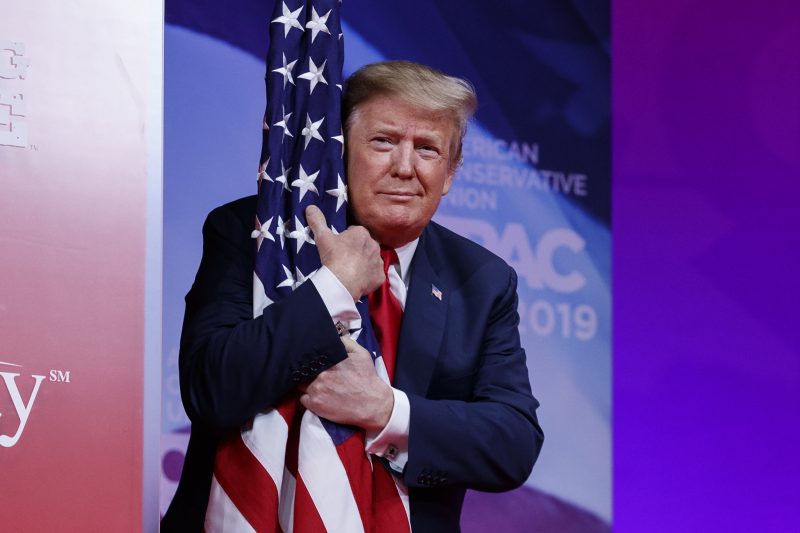One of the central refrains of Donald Trump’s campaign for the 2024 Republican presidential nomination — a refrain focused, justifiably, on a general election rematch against President Biden — is that the economy was more robust during his tenure in the White House. Trump and his allies make this argument constantly, one that largely focuses on inflation and that almost necessarily includes an asterisk that excepts the months of the coronavirus pandemic. But any person asked to evaluate the central themes of this race would very quickly identify the economy as a central part of Republican support for the former president.
As it is, it seems, until a competing priority is presented: the need to “preserve American culture and way of life.” Then, the reality emerges.
On Wednesday, PRRI released the results of its annual American Values Survey, a look at broad themes in American political and religious thought. It included a number of questions aimed at evaluating how Americans thought political power should be deployed and the motivations for doing so.
Among them was a question that got at the dichotomy above. Respondents were asked if they preferred a presidential candidate who was best at managing the economy or one who was best at being able to “protect and preserve American culture and the American way of life.” It’s a pretty explicit question in differentiating between the humdrum practicalities of stewarding the country and the use of presidential power to influence culture war battles.
Most Americans preferred the candidate better at the economy. Republicans — and particularly people who most trust Fox News and fringe-right television news channels — chose the presidential candidate willing to “preserve American culture.” (Those who didn’t trust any television news source or trusted mainstream news preferred the economy candidate.)
This result is striking, not surprising. After all, Fox News and its peers have spent an enormous amount of energy portraying the country as threatened by bad actors, from Biden to street-level criminals. At the more extreme end of these presentations, we get things such as former Fox News host Tucker Carlson’s elevation of the Great Replacement Theory, the idea that the country is being intentionally undermined in service to left-wing politics.
It is also not surprising that there is a big shift by generation, with older Americans expressing more interest in a president who will engage in cultural fights. Older Americans are more likely to vote (and be) Republicans, for one thing. But this question also gets at a central theme of Trump’s career in politics. His slogan that he will “Make America Great Again” is necessarily dependent on the idea that the United States has changed for the worse and needs to be redirected. This is an appeal to a nostalgia that younger Americans lack. It is also necessarily reactionary in a way that centers American “culture” and “way of life.”
A separate question asked respondents whether, since the 1950s, “American culture and way of life has mostly changed for the worse.” Three-quarters of Republicans said it had, compared with only a third of Democrats. Among baby boomers, 6 in 10 respondents held that view, as did two-thirds of those in the silent generation.
There was another finding from PRRI that is useful to add to the mix here. Respondents were also asked a question that approximated support for nondemocratic or autocratic deployment of power: Did the country need a leader willing to “break some rules” given how far off-track things have gotten?
Most people didn’t agree with this idea. About half of Republicans did, about 20 percentage points more than Democrats. Most of those who most trusted Fox News and the fringe-right news sources agreed that a rule-breaking leader might be the prescription.
Notice the correlation. Those who prefer a presidential candidate who is best at fighting for American culture are more likely to say that a leader should be allowed to break some rules to get America back on track.
This obviously overlaps with Trump’s political career and sheds additional light on the composition of his support. (Among those who view Trump favorably, a majority supports a rule-breaking leader.)
It also offers a different lens for his focus on the economy. He knows he has the support of those voters who are primarily focused on protecting American culture — a nebulous, fraught goal. So he’s making the case to everyone else.

